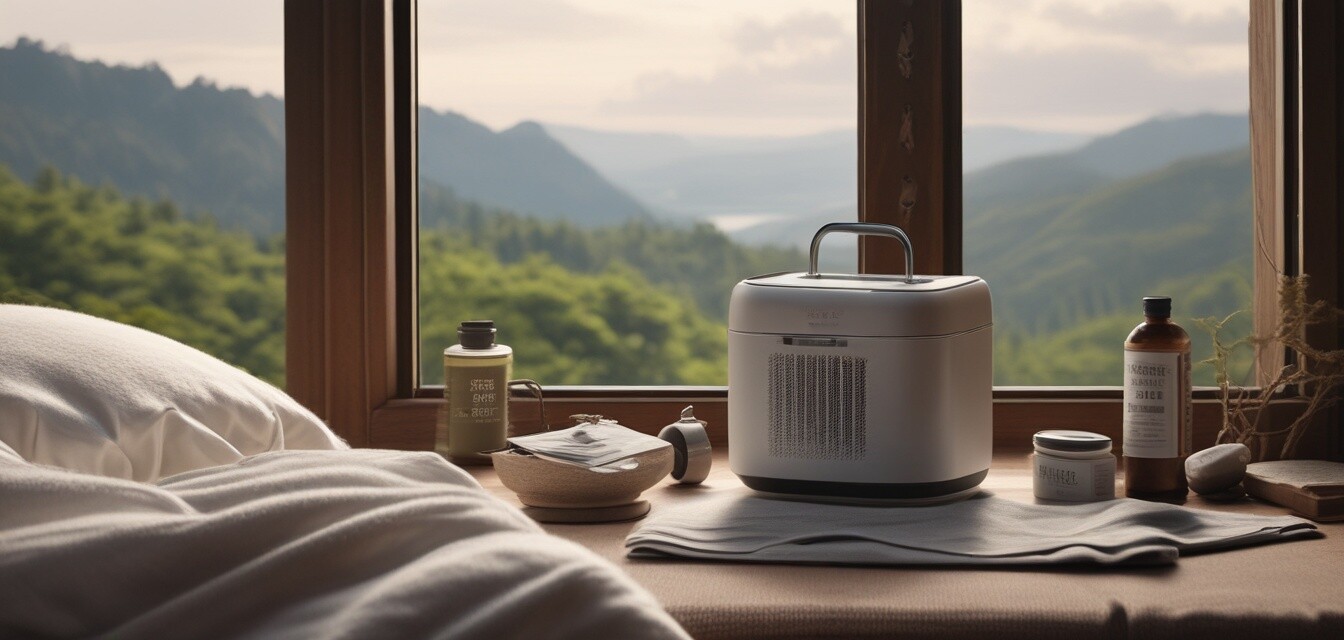
Managing Seasonal Allergies While Traveling
Key takeaways
- Plan ahead and pack allergy-friendly products.
- Be aware of your destination's pollen counts and allergens.
- Utilize preventive measures like medications and air purification.
- Organize your travel items for easy access during your trip.
- Stay informed about local health resources.
Traveling can be one of life's greatest joys, but for those suffering from seasonal allergies, it can often feel like a daunting task. With the right strategies in place, you can effectively manage your allergy symptoms while enjoying new experiences. In this guide, we will provide tips and best practices to help you keep allergies at bay during your travels.
1. Pre-Travel Planning
Preparation is key to managing your allergies effectively while on the move. Here are some steps to consider:
- Research your destination: Before booking, check the pollen counts and common allergens in the area.
- Consult with your healthcare provider: Discuss your travel plans and any necessary medications.
2. Packing Essentials
Proper packing can make a world of difference when it comes to traveling with allergies. Consider bringing the following items:
| Item | Purpose |
|---|---|
| Allergy medications | Manage symptoms during your trip |
| Air purifier | Reduce allergens in your hotel room |
| Allergy-proof bedding | Minimize allergen contact while sleeping |
| Saline nasal spray | Moisturize nasal passages and clear allergens |
| Eye drops | Alleviate itchy or watery eyes |
| Wet wipes | Clean surfaces and hands to remove allergens |
3. Allergy-Proofing Your Travel Experience
Here are some tips to help minimize allergens during your travels:
- Choose hypoallergenic accommodations: Look for hotels that offer allergy-friendly rooms.
- Keep windows closed: Prevent outdoor allergens from entering your room.
- Shower before bed: Wash off allergens accumulated during the day.
- Limit outdoor activities: Choose indoor attractions on high pollen days.
Staying Informed
Stay updated on local pollen counts through websites and apps designed to provide allergy forecasts. Knowing the daily levels can help you plan your outdoor activities accordingly.
4. Managing Symptoms on the Go
Even with thorough planning, you may experience allergy symptoms while traveling. Here are quick strategies to help relieve discomfort:
- Use over-the-counter antihistamines: These can help reduce sneezing and itching.
- Take breaks indoors: Spend time in air-conditioned places to escape outdoor allergens.
- Stay hydrated: Drink plenty of water to keep your throat moist and support allergy relief.
5. Staying Organized
Staying organized is crucial when managing your allergy supplies. Here are a few tips:
- Use a travel pouch for all allergy-related items for easy access.
- Label medications clearly to avoid confusion.
- Keep a list of nearby pharmacies in case you need to refill medications.
Conclusion
With the right planning and proactive strategies, managing seasonal allergies while traveling doesn't have to be stressful. Remember to research your destination, pack essential allergy products, and be aware of the environment you are in. Enjoy your travels with peace of mind!
Pros
- Proper planning can enhance travel enjoyment.
- Packing the right supplies helps manage symptoms.
- Staying informed can prevent allergic reactions.
Cons
- It may require extra time to prepare.
- Some locations may not have adequate allergy solutions.
- Travel can sometimes lead to unforeseen exposure to allergens.
For more tips on how to manage allergies whether at home or away, check out our [Tips and Best Practices](/blog/tips-and-best-practices) section.
Also, consider visiting our sections on [Air Purifiers](/products/air-purifiers) and [Allergy Medications](/products/allergy-medications) for more insights into products that can support you during allergy seasons.